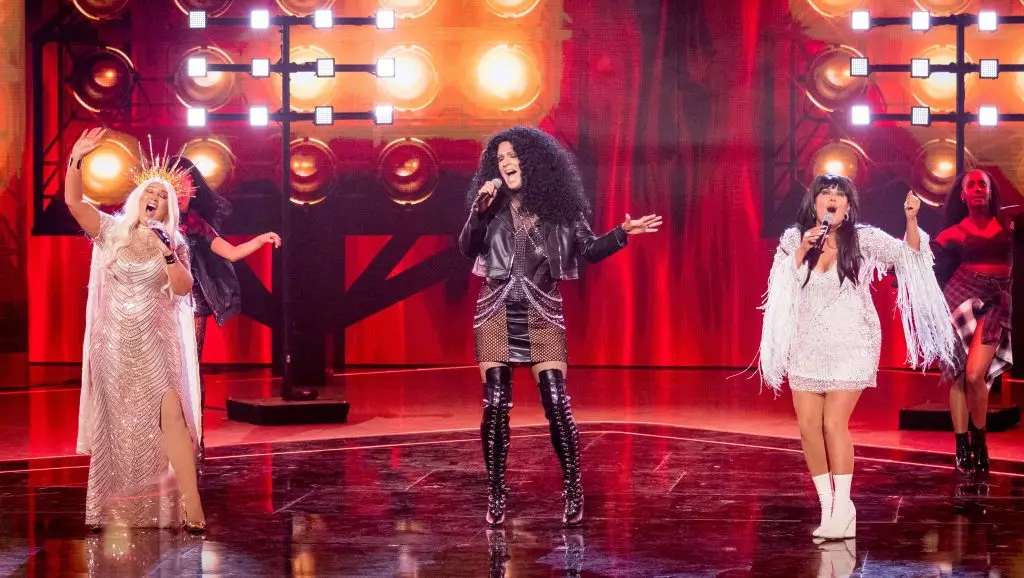In a world increasingly enamored by recycled content, the decision to adapt the singing show *Starstruck* for Italian audiences seems part of a broader trend that has one foot in creativity and the other in redundancy. While one could argue that cultural adaptations allow for innovation and fresh expressions of beloved formats, the reality is that remakes often skirt the line between tribute and imitation, diminishing the originality of the artistic works they borrow from. It’s hard not to feel a pang of loss as we see another unique concept—originally brimming with potential—transformed into a product designed more for profit than for artistic exploration.
Italy’s *Starstruck* marks the seventh iteration of this singing competition, trailing behind successful versions from the UK, Chile, Bulgaria, and others. Of course, one must applaud the ambition of Banijay Italia and their efforts to tap into the vibrant and passionate Italian market, where music is both a form of expression and a cultural ritual. However, one wonders: does adopting the same formula diminish the possibility of creating something uniquely Italian? In an era obsessed with globalization, the nuances of regional culture often get washed away in the sea of conformity.
Celebration or Commercialization?
Francesco Lauber, Chief Creative Officer at Banijay Italia, boasts that *Starstruck* is “a celebration of music, talent, and transformation.” While the commentary showcases the uplifting ideals that underpin the show, one cannot ignore the elephant in the room: is this, too, just another vehicle for commercialization? Wallets are exchanged for thumbs-up in a reality TV tableau where the stakes hinge often not on talent but on how well one can play the game of public opinion. The participants may genuinely relish the transformation journey, stepping into the shoes of their idols, yet this joy can be punctuated by the reality TV chaos that can overshadow the intended celebration of artistry.
The eclectic groupings of performers might spark a sense of joy and nostalgia, but they might inadvertently celebrate a homogenized “best of” assortment that makes the past feel more appealing than the present. With each rendition, the power dynamics shift as familiar music acts become immortalized through flattery rather than fresh interpretations. In the quest for enticing TV, do we risk losing the deeper emotional connections that resulted from original compositions?
Beyond Glitter: Risks of Emotional Desensitization
In contrast to the singing competition, the upcoming buddy comedy, *Saving Buddy Charles*, takes an intriguing approach to storytelling that could serve as a more significant reflection of our times. Chronicling a journey that intertwines friendship and poignant realities of life and mortality, the film interrogates what it means to grapple with dire circumstances performed through comedic means. Unlike *Starstruck*, *Saving Buddy Charles* threatens to elicit genuine emotional responses—laughter mixed with poignant reflections of human fragility.
As the narrative unfolds across a road trip that aims to rescue a beloved pet lizard, the film’s premise aligns with contemporary themes, such as friendship underpinning adversity, illustrated by the character Clara and her harrowing health concerns. Given Jillian Shea Spaeder’s involvement in both writing and acting, this project raises a hopeful flag amidst the sea of superficial reality adaptations. It offers an opportunity for audiences to delve into deeper issues that resonate with the human experience—loss, love, and the absurdity of life.
In this way, *Saving Buddy Charles* explores a vital tension between comedic relief and the harsh truths most would prefer to dodge. It’s heartening to witness a creative endeavor that seeks not just to entertain but to provoke thought and connection.
A Call for Originality in Humanity’s Shared Narratives
While adaptations like *Starstruck* certainly have their place in the entertainment landscape, they often feel less about paying homage to the original and more about regurgitating formulaic structures that drain the vitality from unique stories. Amid the onslaught of remakes, adaptations, and formats seemingly devoid of originality, audiences may find themselves clamoring for innovative narratives. They yearn for stories that explore complexities of life rather than rehashing existing concepts that tread familiar terrain.
As we navigate a complex media landscape where everything from shows to films risks becoming a nostalgic reflection of something that was—without a spark of original thought—we must advocate for content creators who lean into genuine storytelling. With established properties losing their luster, it’s imperative to shine a light on projects that dare to defy the narrative mold, like *Saving Buddy Charles*, and foster a culture of originality that celebrates the human experience in all its messy, beautiful chaos.


Leave a Reply